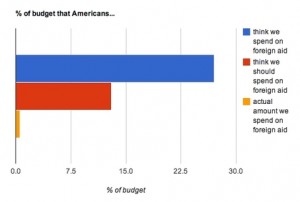We’ve all got our songs–the ones that we love and hold close to our hearts, but the rest of the world seems to be unaware of. When we make mixtapes, we make sure to include them so that others might get a chance to hear what we love so much.
These can be from bands that we love, but they can also be one-offs from otherwise complete unknowns. In some ways, this is even better. Such songs are like single shining beacons that have fallen through time, only heard or remembered by a bare few. Completely untethered from context or meaning.
What I’m hoping is that you, the reader, has one of these to recommend. What is the one song that you think virtually no one else knows, but which is far too good to suffer such obscurity? It needn’t be from a complete unknown–though hopefully some will be. A random b-side or bootleg from a well-known band works. An alternate take of a more widely known song. Or the truly and completely random. Post any recommendations in the comments!
Here are a few of my own (some that have been posted over the years, but which you might have missed):
Homesick – Aberdeen
Aberdeen were a twee pop band from the heyday of Sarah Records. This song is pastoral, effortless, and sounds like floating on a cloud. It starts quietly and her voice drifts along, full of gentle longing, barely skimming the surface. But my absolute favorite moment is when all the sweet tension fractures and the music bursts out at the 4:07 mark. I’ve been in love with this song for years and really can’t get enough of it. The singer, Beth Arzy, has since moved on to Trembling Blue Stars.
Acceleration 5000 – Blue Meanies
This is from Misfits of Ska, a compilation record that confirmed to my teenage ears that ska music had far more to offer than it ever got credit for in the popular imagination. This is the kind of song that makes you put your foot on the gas pedal and drive 100 miles an hour
She Came On – Super Deluxe
Almost the prototype of the genre. Super Deluxe were one of my favorite bands as a teenager growing up in the Northwest. It seemed like the world was theirs, but somehow they just never quite caught fire. This song encapsulates them at their power-pop best. It’s got one of the all-time best openings, as Blake sings “She came on…” in silence and then the guitars kick in, all jangly and full of life, as he continues “…like a storm from the blind side of a memory.” It contains one of my all-time favorite lines: “I found myself wandering aimlessly, calling it freedom.” One of the first posts I wrote on the blog was about Super Deluxe.
Broke My Eyes – DonkeyBoy
A beautiful mixture of electronica and New Wave bliss. The moment at 1:23 just slays me. Unfortunate band name, though.
Lights Out – Easyworld
Shimmery, light, with a fantastic guitar riff, some nice backing vocals, and an unbelievably catchy chorus. Electro-guitar pop at its very best.
Sometimes Wanna Die – Joydrop
Joydrop was one of those alt-rock bands who had a brief moment in the sun during the late 90s. You might remember “Beautiful” – which was their semi-hit. This isn’t an especially brilliant song. It’s just…vivacious, and absolutely beautiful. It’s always struck me as about as close to as good as this sort of straightforward alt-pop music could get.
Mighty K.C. – For Squirrels
A lament for Kurt Cobain, from a band who died themselves in a van accident soon after this was released. One of the most touching and magical songs ever written about loss and death. It starts out dark and stormy, and about a one minute the morass solidifies into a desperate sense of anger and loss (“send me off the morgue I’m ready to be buried away in my bed…and I’m alone without the sun”).
But then, just when the crackling of his voice is almost unbearable, the loss is reappropriated into a sense of transcendent wonder (“by the grace of god go I into the great unknown”).The rest of the song teeters back and forth between these perspectives without any clear resolution yet still leaving you with a sense of fulfillment.






